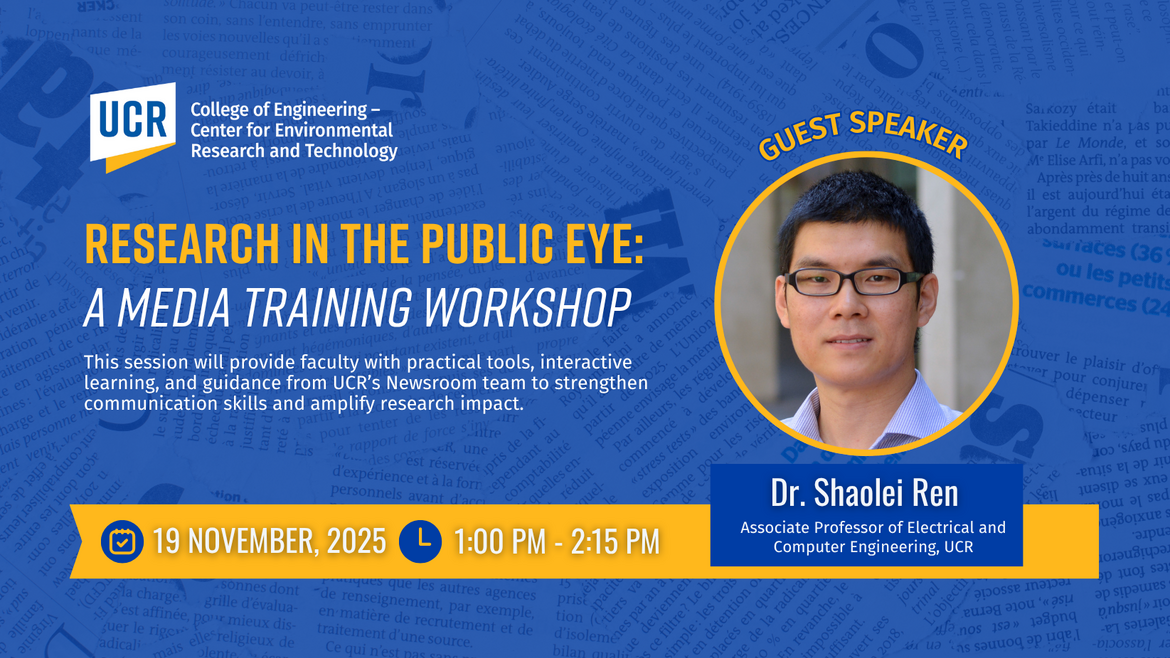
Media coverage can amplify your research, expand your professional impact, and open doors to new opportunities. Are you ready when a reporter calls?
This interactive media training workshop, led by the UCR Newsroom team, will equip CE-CERT faculty with the tools and confidence to:
- Translate complex research into clear, compelling language that resonates with non-experts.
- Navigate interviews with confidence and control your narrative.
- Use media engagement to boost your research visibility, expand your professional reach, and strengthen your academic career.
- Recognize how faculty voices elevate UCR’s reputation on national and global stages.
Through a combination of presentation, discussion, and hands-on exercises, participants will leave with practical skills to represent their work effectively — whether in an interview, on a panel, or in response to breaking news.
Why Attend?
Your research deserves to be heard. This workshop will help you share it in a way that connects with broad audiences, attracts opportunities, and positions you as a trusted expert.
This is a hybrid event, though we encourage you to join us in person to get the most out of the workshop - and enjoy coffee with colleagues. ☕
Special Guest Speaker: Dr. Shaolei Ren
Shaolei Ren is an Associate Professor of Electrical and Computer Engineering at UCR whose research focuses on responsible computing with an emphasis on AI, energy, and public health. His findings have informed AI policies adopted by organizations including the WHO, UNESCO, and the U.S. Government Accountability Office, and inspired industry innovations such as the first real-time water footprint reporting tool for computing. He is a recipient of the NSF CAREER Award (2015) and multiple best paper awards, including ACM e-Energy (2024, 2016) and IEEE ICC (2016).
After publishing a groundbreaking 2023 paper on the massive water consumption required to cool AI data centers, Dr. Ren was inundated with media requests. No UCR faculty member has been quoted more widely in the media over the past two years. His experiences—covered by outlets such as BBC, The Wall Street Journal, CNBC, and The Washington Post—offer unique insights into the opportunities and challenges of working with journalists. Our upcoming issue of UCR Magazine will feature an in-depth profile of him and his reflections on this experience.
As Dr. Ren has shared:
“I needed to learn how to speak with journalists because not all of them are reporting in an objective way. They sometimes put their own thoughts into your work. So I had to learn how to interact with them. But, of course, they bring this message to more people, to the public, to let more people be aware of this issue.”